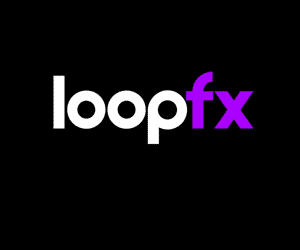MAS Commences Asset Tokenisation Project
Posted by Colin Lambert. Last updated: June 1, 2022
In collaboration with DBS, JP Morgan and MarketNode, the Monetary Authority of Singapore (MAS) has commenced Project Guardian, an initiative to explore the economic value of asset tokenisation. The first stage of the project will see the four parties explore potential DeFi applications in wholesale funding markets, through the creation of a permissioned liquidity pool comprising tokenised bonds and deposits.
MAS says the pilot aims to carry out secured borrowing and lending on a public blockchain-based network through execution of smart contracts. It adds tokenisation “could potentially enhance the efficiency, accessibility, and affordability of financial services, increase liquidity in financial markets, and enhance economic inclusion”.
Going forward, MAS says it aims to develop and pilot use cases in four main areas, open interoperable networks, trust anchors, and DeFi protocols as well as asset tokenisation
This will see the project explore the use of public blockchains to build open, interoperable networks that enable digital assets to be traded across platforms and liquidity pools. This includes interoperability with existing financial infrastructure, MAS says, adding, “Open, interoperable networks can mitigate against the formation of walled gardens in digital exchanges and fragmented private markets.”
The project will also seek to establish a trusted environment for the execution of DeFi protocols through a common trust layer of independent trust anchors. Trust anchors are regulated financial institutions that screen, verify and issue verifiable credentials to entities that wish to participate in DeFi protocols. This ensures that participants trade only with verified counterparties, issuers and protocol developers.
Finally, aside from the asset tokenisation initiative underway, the project plans to study the introduction of regulatory safeguards and controls into DeFi protocols to mitigate against market manipulation and operational risk. The project will also examine the use of smart contract auditing capabilities to detect code vulnerabilities.
“MAS is closely monitoring innovations and growth in the digital asset ecosystem and working through the potential opportunities and risks that come with new technologies – to consumers, investors and the financial system at large,” says Sopnendu Mohanty, chief fintech officer at MAS. “Through practical experimentation with the financial industry and the broader ecosystem, we seek to sharpen our understanding in this rapidly transforming digital assets ecosystem. The learnings from Project Guardian will serve to inform policy markets on the regulatory guardrails that are needed to harness the benefits of DeFi, while mitigating its risks.”
MAS says it welcomes further industry initiatives that addresses Project Guardian’s four areas of interest, as well as responsible digital asset innovation initiatives from the industry. It invites interested parties to submit proposals to the FinTech Regulatory Sandbox for live experimentation.
“Developed on public blockchain, this pilot is pivotal as it furthers efforts to innovate, advance and scale institutional financial applications on blockchain and their interoperability across different blockchain networks with the long-established rails of the existing financial markets,” says Han Kwee Juan, head of group planning and strategy at DBS. “We believe that these early explorations in DeFi solutions will ensure the competitiveness and relevance of Singapore as a cutting edge financial centre.”
Umar Farooq, CEO of Onyx, JP Morgan, adds, “JP Morgan continues to develop blockchain-based solutions for financial services and sees deposits accessible on the public blockchain as the next step in the evolution of digitised commercial bank money from prior work done on JPM Coin System (intra-bank offering) and Partior (inter-bank offering). JPMorgan has co-innovated with MAS leading to several industry first products and introduction of tokenised deposits on public blockchain is yet another milestone we look forward to launching.”
Meanwhile Martin Pickrodt, CEO of Marketnode, says,” Through Project Guardian, we aim to address real market issues, such as fragmented liquidity venues, high intermediation costs and transaction inefficiencies, and are looking forward to the journey ahead.”



